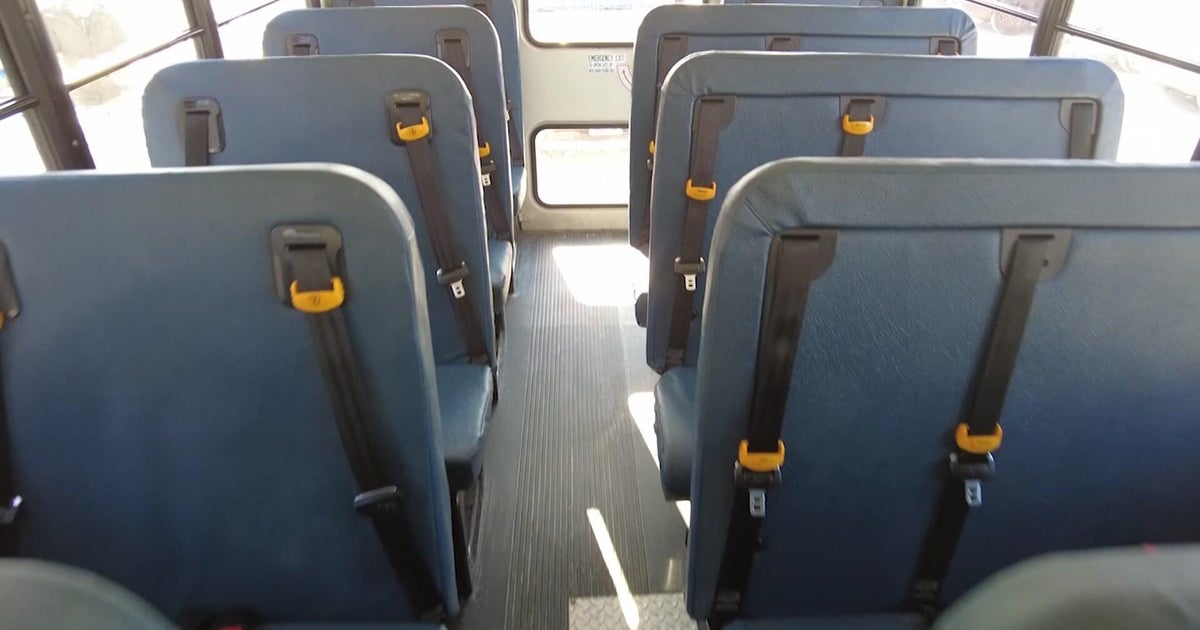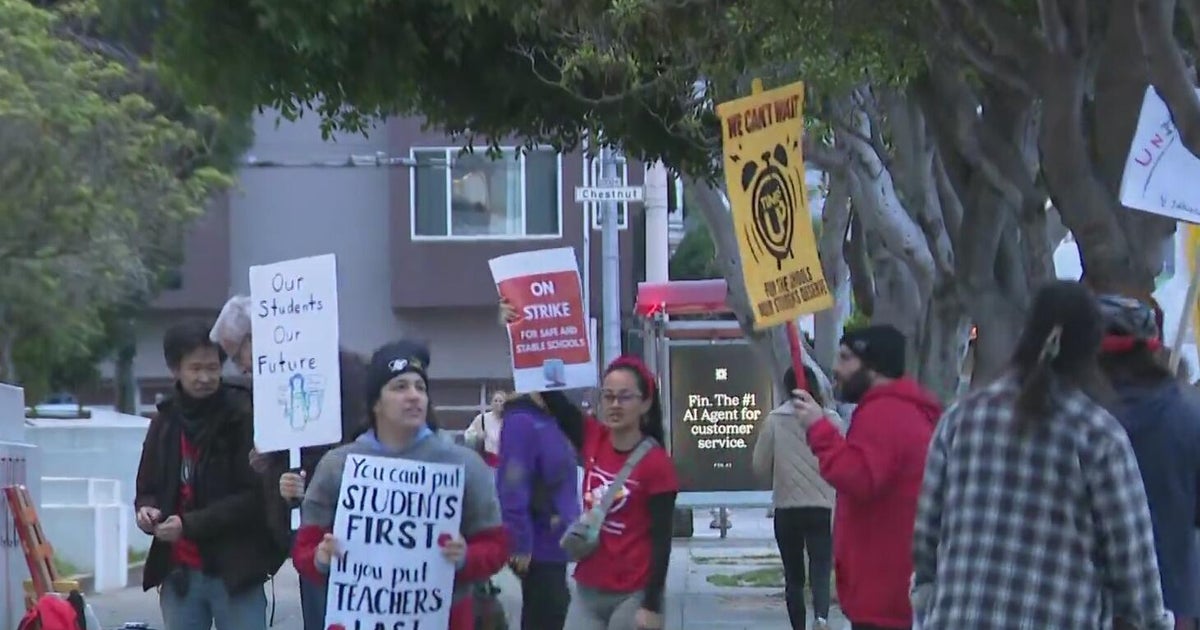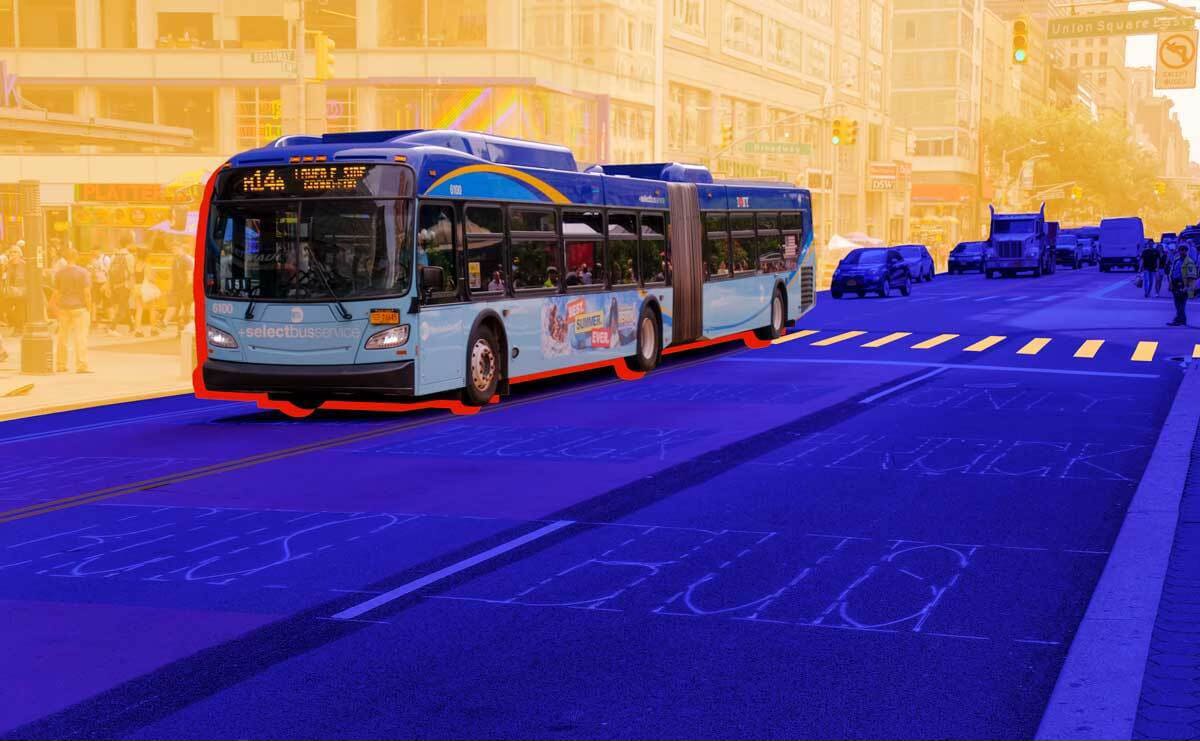Districts taking extra steps to make school bus rides safe: "Why haven't we always done this?"
While a normal year would see about 26 million children take a school bus, the start of the 2020 academic year has seen educators and administrators scramble to create plans to bring kids to and from class safely. Measures to keep COVID-19 from spreading include having kids wear masks and social distance on the ride, but some are still wary of the health risks the coronavirus pandemic poses.
"Okay CJ, come on up, sweet girl," Virginia school bus driver Gracie Duncan told a young student climbing aboard to start her academic year.
She gently reminded the girl to keep her face mask on before instructing the next student in line to walk down the rows of the bus first to fill up seats back-to-front.
The handful of students who climbed aboard the bus, CBS News' Kris Van Cleave reports, must wear masks, go to assigned and distanced seats marked with the school's logo and fill the bus from back to front.
Bus capacity at the Radford, Virginia school has been capped at one third the normal count in order to stagger the young riders. Duncan's bus seats up to 64, but she begins the school year with no more than 20 students. Windows on the vehicle will be down to increase ventilation.
Despite the increased risk, Duncan said she was happy to be behind the wheel.
"I know the safety precautions are in place. I'll be wearing my mask. The kids will be wearing theirs. We're washing hands. We're sanitizing," she said. "I'm feeling really optimistic about getting back to it and being able to do this and keep these kids safe."
Radford schools followed CDC recommendations for school buses, which included the stated measures in addition to disinfecting the bus at least once per day. Students are also recommended to sit in every other seat and skip rows between children. However some, like freshman Brandon Thompson, still feel unsure.
"I'm nervous," he said. "I don't know if the cases are going up in Radford. So you don't know if you're going to get it or you're not going to get it."
Thompson is not alone — a survey of district parents found only about 25% said they would let their children take the bus this year.
The district's superintendent, Rob Graham, acknowledged the risks of in-person instruction and bus rides and said they have worked to "make it as low as possible."
"I think there's even a bigger risk of not having our children in school, face to face," Graham said.
Meanwhile in Georgia, where COVID-19 cases have soared, Commerce City Superintendent Joy Tolbert said some of the given CDC measures are not practical enough to follow.
"We do not have students situated so they're sitting every other seat. We do have students in every seat on the bus, but we do have the windows down on the bus to provide additional ventilation," Tolbert said.
Of the city's 1,800 students, 15% opted for at-home virtual learning. However, social distancing options remain limited and the district cannot use its extra buses because it lacks additional drivers.
"There is a shortage of bus drivers and that was even the case before the coronavirus. Because you just cannot find bus drivers," Tolbert said.
Despite still driving dozens of students per day, drivers like Dawn Hensely said she is "not anxious at all" and thinks the kids will "do better" with in-person schooling.
Both school districts have overhauled how they clean buses. Using electrostatic foggers, the busses are disinfected daily. Drivers wipe down all touched surfaces for added safety.
Tolbert said the changes could be "the new normal."
"It made me realize, 'Why haven't we always done this for flu season?'"



